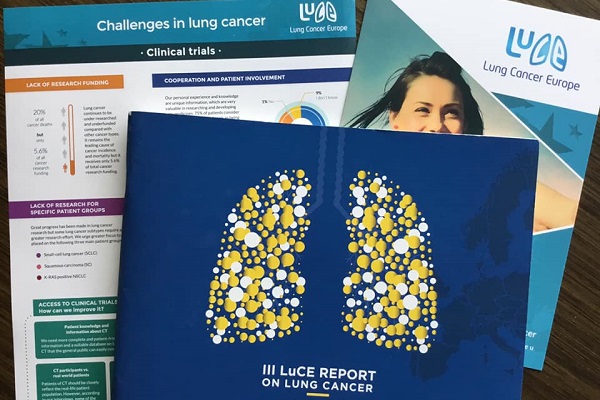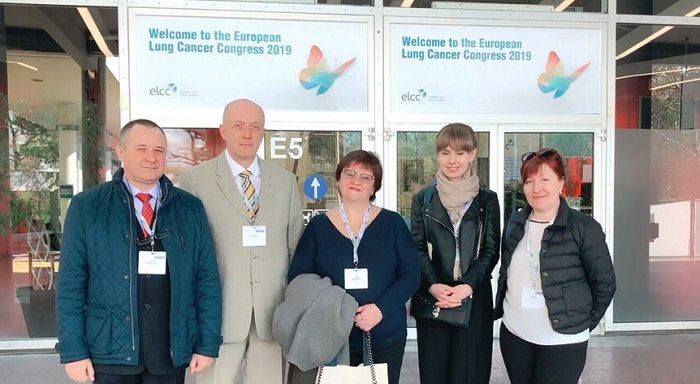On June 10-13, 2019, The European Congress on Lung Cancer took place in Geneva, Switzerland, in work of which Ass. Prof. of The Oncology Department of Shupyk NMAPE Olga Ponomaryova, MD, PhD have participated.

The European Congress on Lung Cancer is a collaborative meeting of the most important multidisciplinary Societies, that represents the thoracic oncology professionals, who seek to achieve the common goal of promoting science, education and improving the practice of the pulmonary cancer treatment by the specialists around the world.
The main topics of the Congress were: application of immunotherapy in actual combinations, small cell lung cancer and mesothelioma, the introduction of screening for pulmonary cancer, the first line of treatment for oncogenic and non-oncogenic tumors, the molecular pulmonary cancer background and biomarkers of a non-small cell lung cancer. The target audience of the Congress was presented by medical oncologists, radiation oncologists, thoracic surgeons, respiratory doctors/ pneumologists, interventional radiologists and pathologists.
The leading scientists from the European scientific community have dedicated their reports to modern algorithms for diagnosing and treatment of pulmonary cancer. The changes occurred in the therapeutic scenario over the past 15 years have highlighted the need for a multidisciplinary approach to the treatment of the lung cancer. The actual international trials evidence gained suggests, that centers with a large volume of health services and multidisciplinary teams are more effective in managing of the pulmonary cancer patients than the low-volume or non-multidisciplinary centers, as they are able to provide a more correct stage of a tumoral process, better compliance recommendations and the patients’increased survival.

The modern multidisciplinary tumor panels elaborated are applied in forming of the initial treatment plans in 26-40% of the disease cases. The absolute need to achieve a proper and accurate morphological and biological definitions often requires a technically complicated tissue sampling, with most treatment decisions depending on the information obtained from the sample collected during the diagnosis. After a pathohistological diagnosis established, the following justification is consisted of the testing of biomarkers with prediction for the proposed therapeutic option efficacy. This practice nowadays constitutes a paramount clinical importance due to availability of a personalized treatment and will vary greatly between different national health systems. Modern pathomorphological practice now develops in the two test streams, one - for detection of the targeted oncogenic changes, and another - for search of biomarkers for the targeted and immune-oncological therapy.

In most communications in the Congress it was stressed, that the treatment strategy in pulmonary cancer should take into account such factors as tumoral histology, molecular pathology, as well as the patient’s age, somatic status, concomitant diseases and preferences. The treatment decisions should be discussed within the multidisciplinary commission on tumors, which can evaluate and modify the treatment plans, including recommendations for providing of additional examination and change in therapy. It is also very important to offer the system therapy to all patients, suffering pulmonary cancer Stage IV with PS 0-2.
Contemporary trends in the treatment of malignant tumors of the lung have been widely discussed at the Congress, namely immunotherapy and combined algorithms - immunotherapeutic agent + immunotherapeutic agent, immunotherapeutic agent + chemotherapy, immunotherapeutic agent + targeted therapy, etc.
The tremendous efforts of the global medical community introduced nowadays and enlightened during the Congress are aimed at improving of the treatment outcomes and preserving the medical aspects of quality of life in patients, suffering pulmonary cancer.



